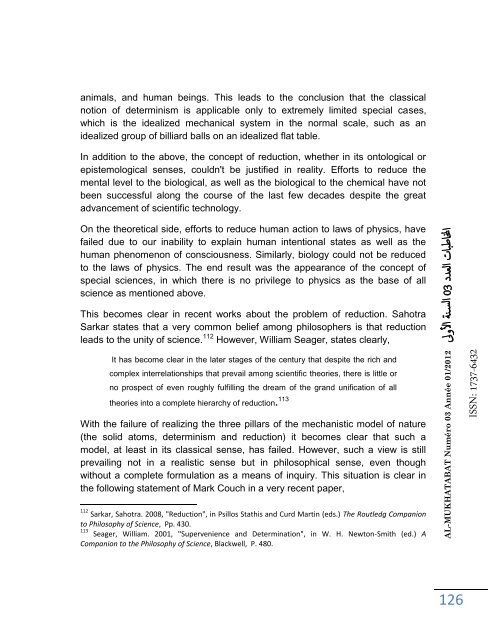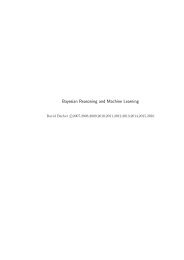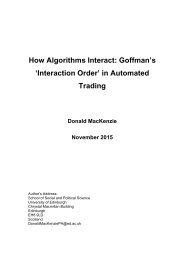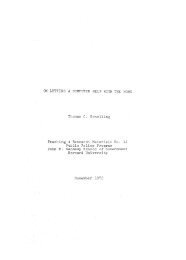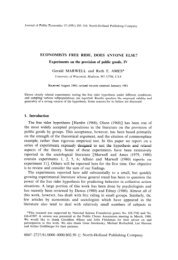n3-al-mukhatabat-journal
n3-al-mukhatabat-journal
n3-al-mukhatabat-journal
Create successful ePaper yourself
Turn your PDF publications into a flip-book with our unique Google optimized e-Paper software.
anim<strong>al</strong>s, and human beings. This leads to the conclusion that the classic<strong>al</strong><br />
notion of determinism is applicable only to extremely limited speci<strong>al</strong> cases,<br />
which is the ide<strong>al</strong>ized mechanic<strong>al</strong> system in the norm<strong>al</strong> sc<strong>al</strong>e, such as an<br />
ide<strong>al</strong>ized group of billiard b<strong>al</strong>ls on an ide<strong>al</strong>ized flat table.<br />
In addition to the above, the concept of reduction, whether in its ontologic<strong>al</strong> or<br />
epistemologic<strong>al</strong> senses, couldn't be justified in re<strong>al</strong>ity. Efforts to reduce the<br />
ment<strong>al</strong> level to the biologic<strong>al</strong>, as well as the biologic<strong>al</strong> to the chemic<strong>al</strong> have not<br />
been successful <strong>al</strong>ong the course of the last few decades despite the great<br />
advancement of scientific technology.<br />
On the theoretic<strong>al</strong> side, efforts to reduce human action to laws of physics, have<br />
failed due to our inability to explain human intention<strong>al</strong> states as well as the<br />
human phenomenon of consciousness. Similarly, biology could not be reduced<br />
to the laws of physics. The end result was the appearance of the concept of<br />
speci<strong>al</strong> sciences, in which there is no privilege to physics as the base of <strong>al</strong>l<br />
science as mentioned above.<br />
This becomes clear in recent works about the problem of reduction. Sahotra<br />
Sarkar states that a very common belief among philosophers is that reduction<br />
leads to the unity of science. 112 However, William Seager, states clearly,<br />
It has become clear in the later stages of the century that despite the rich and<br />
complex interrelationships that prevail among scientific theories, there is little or<br />
no prospect of even roughly fulfilling the dream of the grand unification of <strong>al</strong>l<br />
theories into a complete hierarchy of reduction. 113<br />
With the failure of re<strong>al</strong>izing the three pillars of the mechanistic model of nature<br />
(the solid atoms, determinism and reduction) it becomes clear that such a<br />
model, at least in its classic<strong>al</strong> sense, has failed. However, such a view is still<br />
prevailing not in a re<strong>al</strong>istic sense but in philosophic<strong>al</strong> sense, even though<br />
without a complete formulation as a means of inquiry. This situation is clear in<br />
the following statement of Mark Couch in a very recent paper,<br />
112 Sarkar, Sahotra. 2008, "Reduction", in Psillos Stathis and Curd Martin (eds.) The Routledg Companion<br />
to Philosophy of Science, Pp. 430.<br />
113 Seager, William. 2001, "Supervenience and Determination", in W. H. Newton-Smith (ed.) A<br />
Companion to the Philosophy of Science, Blackwell, P. 480.<br />
AL-MUKHATABAT Numéro 03 Année 01/2012 لىولأا ةن سلا 30 ددعلا تابطانا<br />
126<br />
ISSN: 1737-6432


